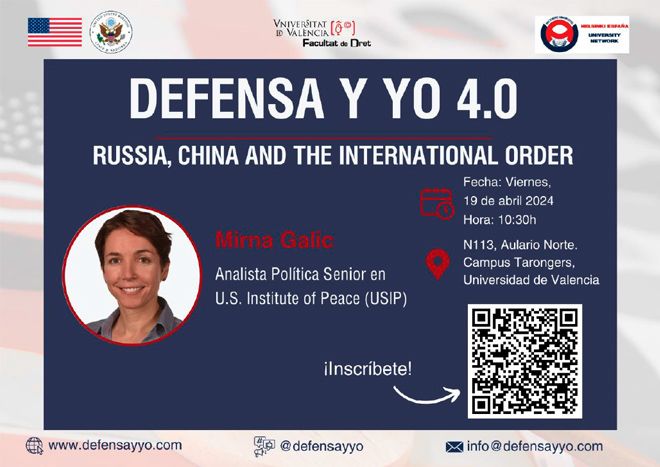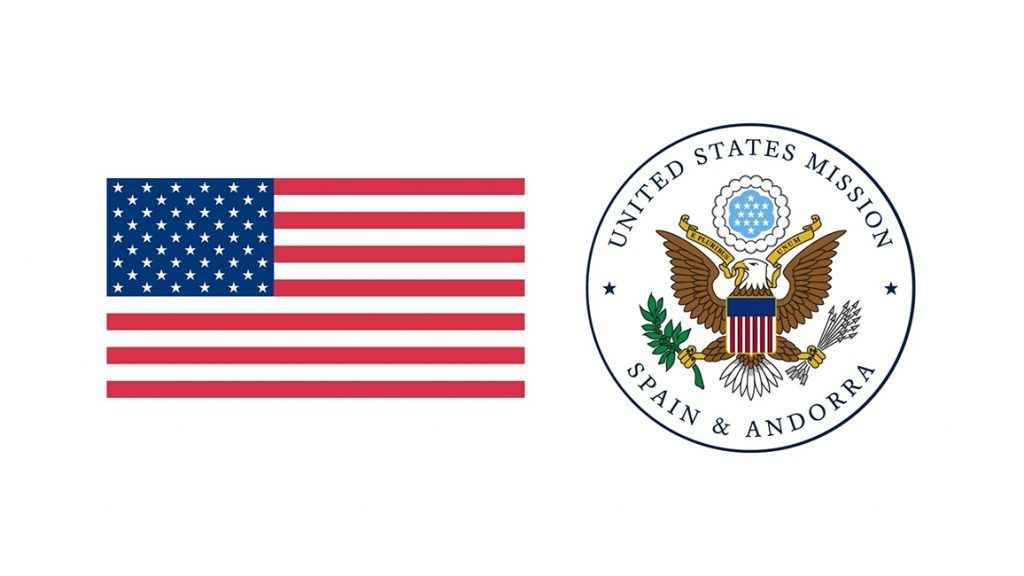conferences and topics (2024)

Universidad de Valencia
GET TO KNOW OUR LECTURERS
Mirna Galic – Lecture
Senior Policy Analyst for China and East Asia at the U.S. Institute of Peace (USIP)
Mirna Galic is an expert on U.S. relations with Asian and European partners, with a focus on regional and global security. Prior to her work at the United States Institute of Peace (USIP), she was a fellow at the Council on Foreign Relations – Hitachi International Affairs in Tokyo and a senior advisor to the U.S. government. She has seven years of experience in the State Department, the U.S. Senate and the United Nations. She has also contributed significantly to international diplomacy. She is known for her insightful publications, especially on Japan-NATO relations. She holds a master’s degree in international relations from Princeton University and a bachelor’s degree in environmental studies from Stanford University.
Clara Portela Sais
Professor and researcher. University of Valencia
Before returning to her hometown to join the Faculty of Law, Clara PORTELA was a lecturer in Political Science for almost a decade at Singapore Management University (Singapore). Political Science for almost a decade at Singapore Management University (Singapore). She has also been a researcher at the European Union Institute for Security Studies (EUISS) in Paris.
A graduate of the Free University of Berlin and a PhD from the European University Institute in Florence, her research focuses on European foreign policy, multilateral sanctions and arms control. Her work has been awarded the THESEUS Prize for Promising Research in European Integration, and her article on differentiated cooperation in European foreign policy co-authored with M. Onderco has been nominated for the Bernard Brodie Prize 2024. She has been a Konrad Adenauer Visiting Scholar at the Centre for European Studies at Carleton University in Ottawa, Canada, in its inaugural edition. Previously, she was Visiting Professor at the College of Europe, OSCE Academy, SciencesPo Grenoble, SciencesPo Lyon, SciencesPo Paris, Hitotsubashi University in Tokyo and at the University of Innsbruck. She has been a consultant for the European Commission, the Ministry of Foreign Affairs of Spain, the Prime Minister’s Office of Finland, the Ministry of International Trade and Industry of Japan, and has advised the European Economic and Social Committee – an EU advisory body – and the European Parliament, as well as civil society organizations such as Transparency International, Democracy Reporting, Civil Forum for Asset Recovery or Small Arms Survey. She has also been an instructor in executive courses offered by the Graduate Institute of International Studies in Geneva and the School of Transnational Governance in Florence.



